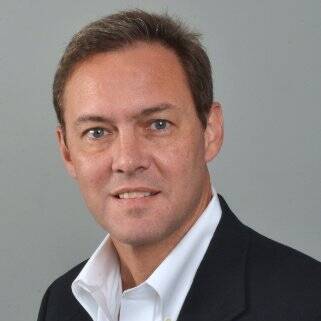President Obama wants to earmark a billion dollars to aid Central America—specifically, the isthmus’s “northern triangle” of Guatemala, El Salvador and Honduras.
The U.S. military’s Miami-based Southern Command has labeled the northern triangle the “deadliest zone in the world” outside Afghanistan and Iraq. And for good reason. It is plagued by some of the world’s highest murder rates, thanks to the bloodthirsty, tattooed maras, or street gangs, that control whole swaths of territory there.
Combine that with the region’s destitution—almost two-thirds of Hondurans live in poverty—and it is small wonder the United States has seen a surge in undocumented Central American migrants in recent years, including the more than 60,000 unaccompanied children who showed up on our doorstep in 2014.
But there is a third factor that merits far more attention than we outside Central America give it: corruption. In fact, the region’s epic venality—and the way it bleeds national economies—plays a large role in generating the region’s poverty and violence. This is why folks in the northern triangle seem to have finally lost all patience with it—and why a president was not only thrown out of office this month but thrown behind bars. Meanwhile, the head of state next door faces street protests demanding the same.
Guatemala’s President Otto Pérez Molina resigned on Sept. 3 after Congress stripped him of his immunity from prosecution. It did so to make him face charges that he took part in a scandal in which high-ranking Guatemalan officials allegedly pocketed tens of millions of dollars in bribes from importers wanting to evade customs duties.
What’s more remarkable: In a country whose history is synonymous with dark lawlessness, Pérez, a former army general and military intelligence chief, went straight to a lock-up and then a court hearing. Pérez denies the charges against him, but most Guatemalans seem convinced he is guilty.
What outrages them most about the import duties scandal is that Guatemala already has one of the world’s highest tax evasion rates. That has reduced its public revenues to just a tenth of its gross domestic product, making it impossible to provide meaningful social and security services—in other words, making the country ripe for economic and criminal misery.
The situation is even more appalling just to the south in Honduras. For months now, Hondurans—not a people known for taking to the streets—have railed against a bribery and embezzlement scheme that has gutted more than $300 million from their country’s public health and social security system. Their marches feature skulls on pikes to symbolize the deaths likely to result from that larceny.
President Juan Orlando Hernández’s National Party admits it took hundreds of thousands of dollars from companies involved in the crime. Hernández denies he knew about it, but few Hondurans believe him. Calls for his resignation are widespread.
“Corruption like this, if it’s met with impunity, creates a fatal sense of national hopelessness,” Wilfredo Mendes, one of the protest leaders who recently went on hunger strikes, told me in Tegucigalpa last month.
So are we watching a Central American Spring unfold? That is still unclear. But the United States, whose chief aim is to stem the flow of desperate Central American migrants, is taking the trend seriously. The U.S. ambassador to Honduras, James Nealon, has met with protest leaders there to facilitate a reform dialogue with the government.
“The protest movement is a positive thing,” Nealon told me. “We’re going to help [Hondurans’] efforts to confront the problem of impunity and corruption.”
Which brings us back to Mr. Obama’s billion-dollar plan, one of the largest foreign aid requests for fiscal 2016. Instead of focusing on conventional security assistance, like military helicopters, it emphasizes more effective strategies like police and judicial reform—not to mention enhanced job and education opportunities and, perhaps most important, promoting more transparent governance.
There is a dilemma involved here, of course. Dropping a billion bucks into a region as corrupt as the northern triangle is risky—but it’s also urgent. Either way, it reflects Washington’s long overdue realization that the place to address illegal immigration is not at our border but at its sources.








